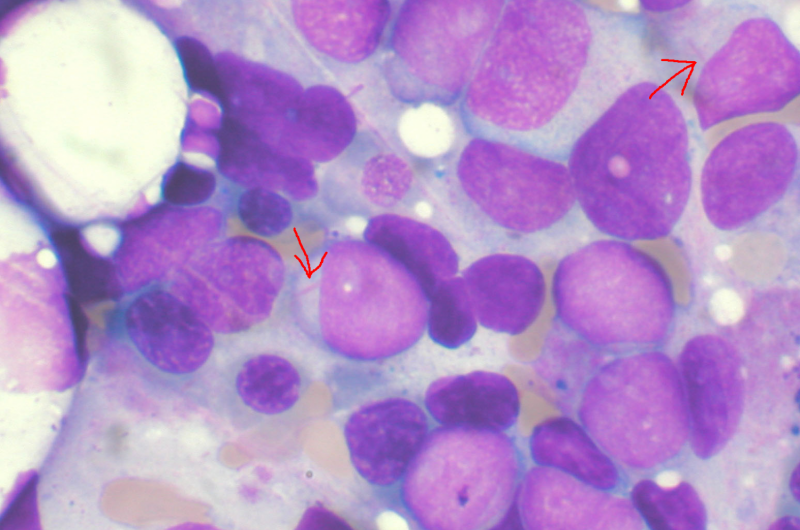New Surface Protein Mechanism Identified in Leukemia Cells to Evade Immune System

Lund University researchers have identified a surface protein, SLAMF6, that helps leukemia cells evade immune detection. Blocking this protein may lead to new targeted therapies for resistant AML.
Researchers at Lund University in Sweden have uncovered a novel mechanism by which acute myeloid leukemia (AML) cells evade detection by the immune system. The team identified a specific surface protein, SLAMF6, that is uniquely expressed on leukemia stem cells but absent on healthy blood stem cells. This discovery was made through extensive protein mapping in bone marrow samples from patients with resistant AML and compared with healthy donor cells. The presence of SLAMF6 on cancerous cells facilitates their escape from immune surveillance, allowing the disease to progress unchecked.
Further functional studies using CRISPR/Cas9 gene editing demonstrated that SLAMF6 plays a central role in helping leukemia cells avoid attack by T cells, the immune system’s primary defense. Notably, the team developed a targeted antibody against SLAMF6 in collaboration with the SciLifeLab Drug Discovery and Development Platform. Blocking this surface protein was shown to 'turn on' the immune response, enabling T cells to recognize and destroy the leukemia cells both in laboratory experiments and animal models.
This breakthrough provides critical insights into the limited effectiveness of current immunotherapies against AML and offers a promising new therapeutic target. By disrupting SLAMF6, the immune system’s ability to fight AML could be significantly enhanced. The research team is now working on further developing and testing the antibody, aiming toward future clinical trials. Additionally, they have established a spin-off company, Lead Biologics, to advance the commercial potential of this novel treatment.
This discovery marks a significant step toward personalized cancer therapy, where treatments are tailored based on tumor-specific immune evasion strategies. Continued research and clinical validation could see this approach becoming a vital component of AML treatment in the future.
Stay Updated with Mia's Feed
Get the latest health & wellness insights delivered straight to your inbox.
Related Articles
Breakthrough in Cancer Treatment: Experimental Drug Advances to Human Clinical Trials
Innovative compounds targeting the RAS gene pathway have advanced to human trials, showing promise for more effective and safer cancer treatments by selectively inhibiting tumor growth mechanisms.
Harnessing AI to Prevent Millions of Food Poisoning Cases
Discover how artificial intelligence and hyperspectral imaging are transforming food safety by enabling rapid detection of contaminants, potentially preventing up to 600 million cases of food poisoning annually.
Prenatal Alcohol Exposure May Impair Stroke Recovery in Midlife
Prenatal alcohol exposure can have lasting health effects, including worsening stroke recovery in middle age. New research underscores the importance of early-life factors in determining long-term cerebrovascular health.
Protecting Healthcare Workers Amid Rising Measles Cases: The Importance of Vaccination
As measles cases surge globally, protecting healthcare workers through vaccination is vital to prevent transmission and safeguard vulnerable populations. Learn how education and improved screening can boost vaccination rates among health professionals.



